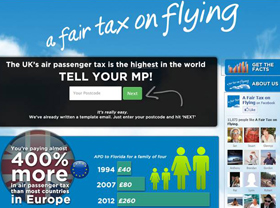Tourism and the Recession

Tweet
This may be Britain’s Summer of Sport, but much of the thrust is about promoting tourism within the UK – a message acceptable to many in recession-hit Britain.
With the recession and rising airline ticket prices, mostly because of new taxes, it is not surprising to find out that the number of British tourists visiting the Caribbean has gone down.
Caribbean visitor arrivals from the UK have declined every year for the last three years.
Figures from the Caribbean Tourism Organisation (CTO), shared with Caribbean Intelligence©, indicate a 17% drop in UK visitors to the region between 2008 and 2011.
Eastern Caribbean countries have been hardest hit, because of their increased dependence on tourists from the UK.
In one example, St Lucia saw its 2010 arrivals fall 19.4% below the number of arrivals in 2008. Tourism receipts fell even more sharply in this period – on average, 25% below the 2008 level.
Value for money
“We are finding that visitors are spending less and increasingly looking for strong value-for-money deals,” the CTO’s director of marketing in the UK and Europe, Carol Hay, told Caribbean Intelligence©.
“At the lower end of the spectrum, hoteliers and tour operators will need to keep the focus on value for money.
“Ensuring that tourists feel like they are getting a good deal is paramount at the moment.”
The celeb factor
At the higher end of the market, the “celeb” factor continues.
Tourism officials say that people in this market want to retain their privacy and enjoy breaks away from their high-profile lives.
But there’s another growing element of the top-range travel market – the empty nester.
These are people who have paid off their mortgages and put their children through school and possibly university, leaving them free to enjoy life.
“They want a slightly better quality vacation and a slightly better experience,” explains Ms Hay.
ADVERTISMENT
Olympic focus
So while airlines are encouraging Britons to stay home for the summer of sport and travel on “special deals” in September, Caribbean tourism officials are playing for the long game, as well as capitalising on the Caribbean Olympic focus.
“The Caribbean has an enormously strong sporting heritage and we will be showcasing this throughout the summer, both via our athletes and special events,” says Ms Hay.
Jamaica House, where the Jamaican Olympic showcase will take place at London’s O2 Arena, is a part of the plans for the most high-profile team at the Games.
Trinidad and Tobago has set up a Cultural Village in west London to do a similar promotional thrust.
In addition, Grenada’s Olympic House will showcase Grenadian music, arts and dance at its north London venue.
And the British Virgin Islands, also hoping to pick up some Olympic glory with their medal hopefuls will also be displaying their Olympic history at BVI House in central London.
Wedding plans
As part of the medium-term strategy, the CTO team in London has a post-Olympic tourism plan, using September to focus people’s minds on the Caribbean.
This includes the launch of the 2013 Caribbean Weddings and Honeymoon guide, to cater for the growing British interest in weddings on sun-kissed beaches.
Another prong of the tourism development plan is the Diaspora market – second, third and fourth generations of people of Caribbean origin.
The figures indicate that their behaviour is different from the older diaspora.
Instead of staying with aunties, uncles and grandparents, these travellers hire cars, stay at hotels and bed-and-breakfast accommodation and immerse themselves more in the local culture when they “reach home”.
“They want to experience the culture,” says Ms Hay. “And expose their children to it.”
Worthy breaks
The other growing tourism demographic is the group called voluntourists.
The trade name is “experiential voluntourism” – that is, people taking holidays which they link to teaching, taking part in projects, environmental and post-disaster help and breaks which leave them feeling they’ve made a positive impact on the countries visited.
Even the big operators are beginning to pay attention to this travel niche. The Sandals resort chain is running a programme in which guests sign up to listen to students reading at local schools.
But, whether it’s sun, sand and sea or worthier holiday breaks, all visitors from the UK face the ticket price hikes caused by Britain’s airport departure tax (APD).
This came into force in November 1994 and has been increased several times since then, most recently by 8% in April this year.
Diaspora groups and stakeholders, such as airlines and companies which do business in the Caribbean, continue to lobby against the tax and the band in which the Caribbean finds itself, making it less competitive than tourism destinations which are farther away.
“We’re still in an unfair position,” the CTO’s Ms Hay told Caribbean Intelligence©.
“We must continue to lobby as this will go up each year.”
The CTO says that it’s hard to generalise about whether the recession is forcing businesses to close.
Officials point to new hotels in Grenada and the Bahamas, as well as new suites opening up in Barbados.
Meanwhile, the search for the perfect holiday at the best value continues.
US Travel News publication stated in July: “Many islands boast the stereotypical ocean breezes, warm white sand and crystal clear water of postcard lore.
“But some have limited activities away from the resorts and beaches that are too jam-packed to enjoy. Let our research help you pick the best and most affordable Caribbean vacation for any time.”
Paradise continues to be appealing....but only at the right level of value for money.
